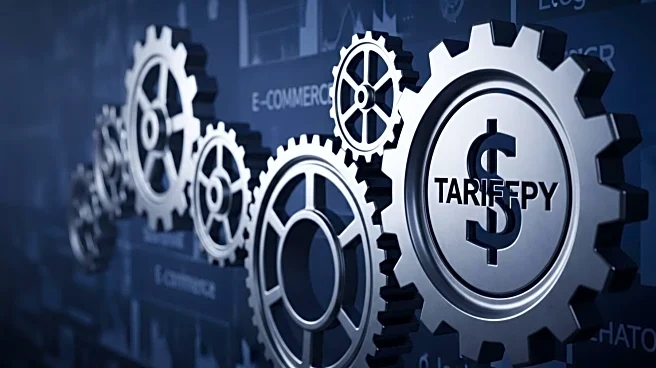What is the story about?
What's Happening?
The termination of the U.S. de minimis tariff exemption on August 29, 2025, marks a significant shift in global trade dynamics. President Trump's administration has eliminated the $800 duty-free threshold for low-value imports, compelling businesses to navigate a new era of compliance complexity and increased costs. This policy, part of the broader 'America First Trade Policy,' aims to curb illicit goods, protect domestic industries, and modernize customs enforcement. The change has disrupted global supply chains, with postal services like DHL and Royal Mail pausing U.S.-bound deliveries to adapt to new documentation requirements. Small and medium-sized enterprises face substantial financial burdens, with estimated additional costs of $71 billion annually due to tariffs and compliance overhead.
Why It's Important?
The end of the de minimis tariff exemption represents a major regulatory change impacting e-commerce platforms and small businesses. The increased compliance costs and tariffs could lead to higher prices for consumers and affect the competitiveness of U.S. businesses in the global market. However, this shift also presents opportunities for logistics and customs compliance firms specializing in AI-driven automation and blockchain-based documentation. These firms are poised to benefit from the increased demand for efficient compliance solutions, potentially driving growth in the logistics and compliance technology sectors.
What's Next?
Businesses will need to adapt to the new compliance landscape by investing in logistics and compliance solutions. Companies may explore strategies such as U.S.-based fulfillment centers, bulk importing, and nearshoring to mitigate costs. Investors might focus on firms with scalable compliance technology and strong client retention, as the logistics industry shows potential for growth despite short-term challenges.
Beyond the Headlines
The policy shift could accelerate innovation in logistics and compliance technology, driving long-term growth in these sectors. The focus on automation, data integration, and supply chain resilience may lead to advancements in efficiency and cost management, benefiting businesses and consumers alike.
















